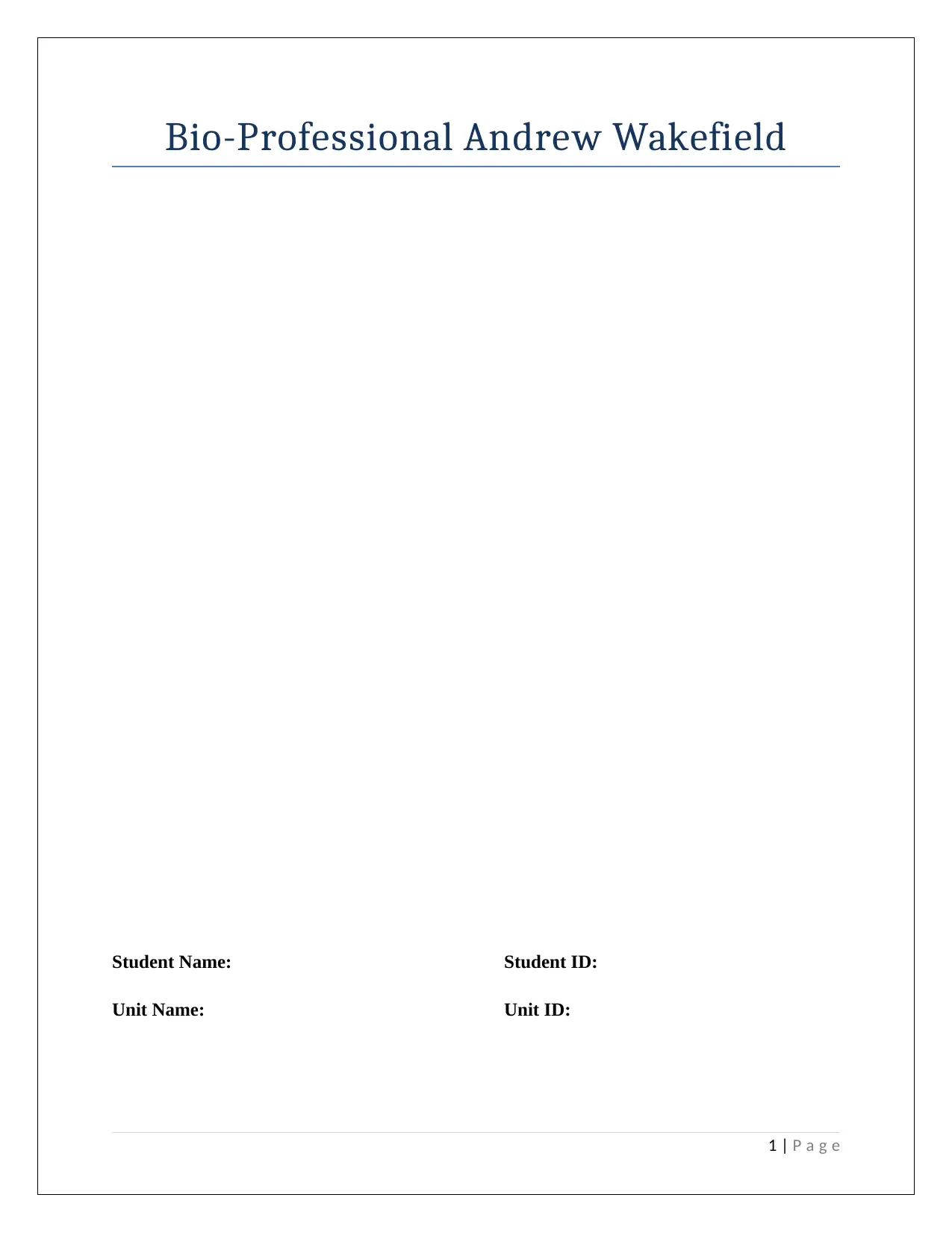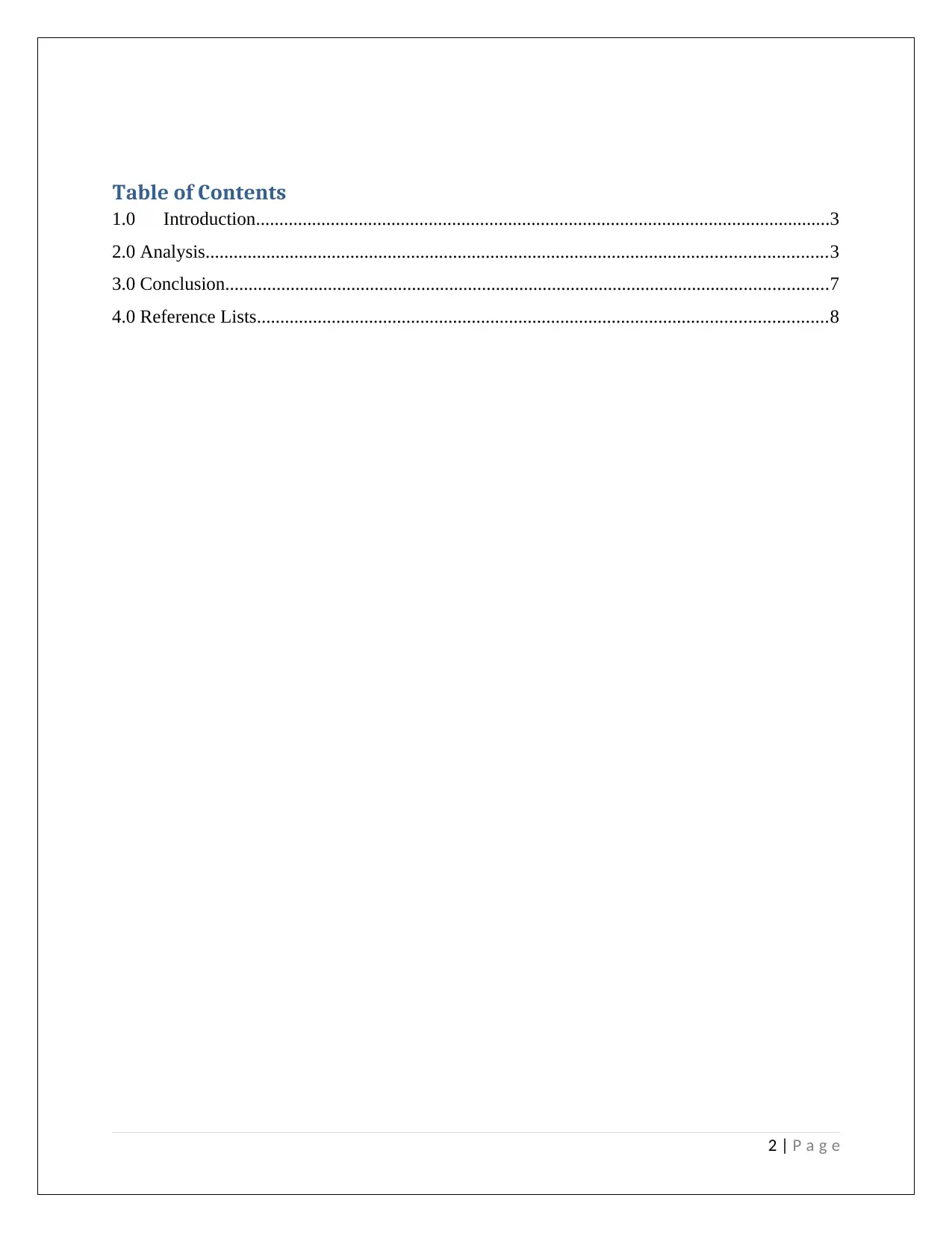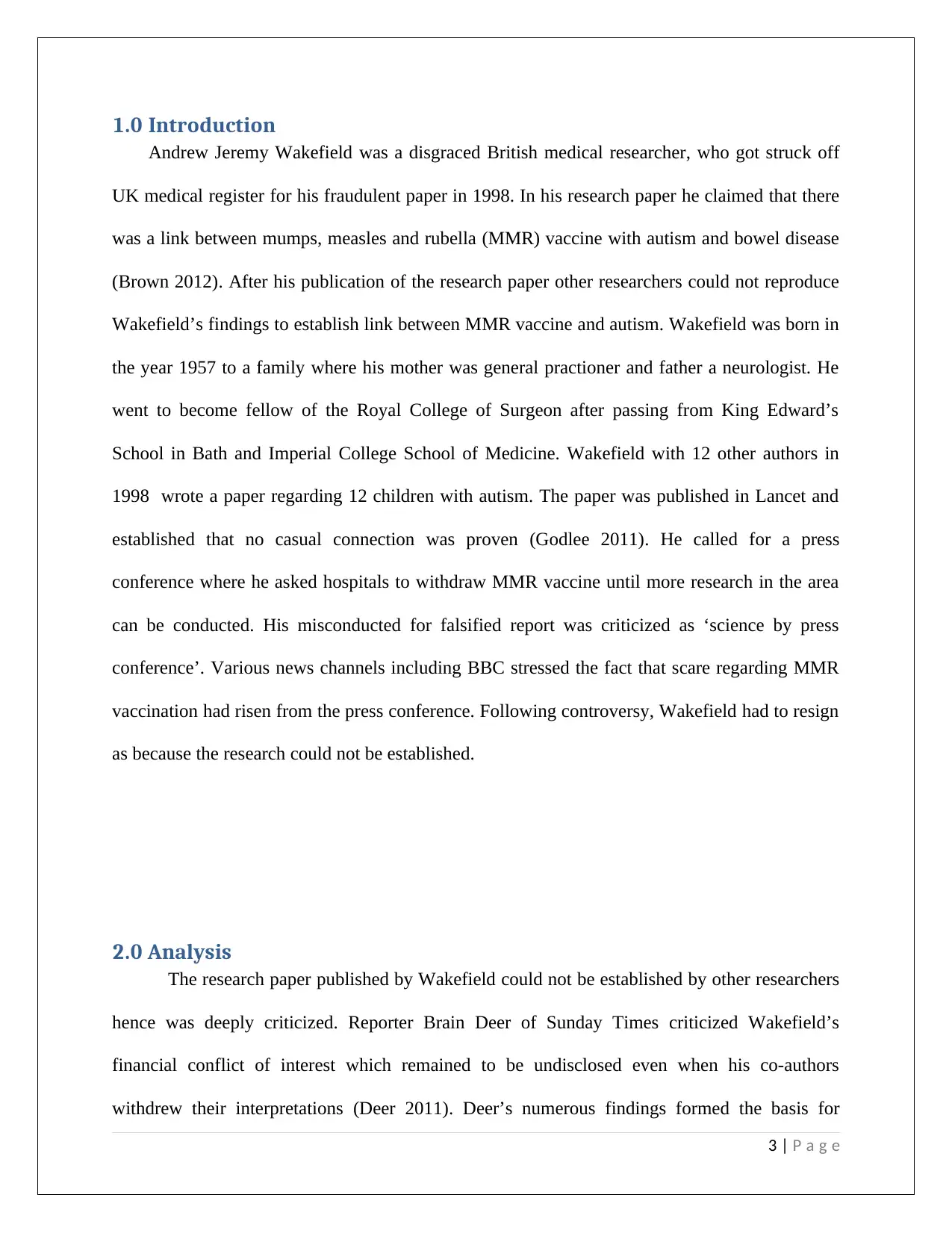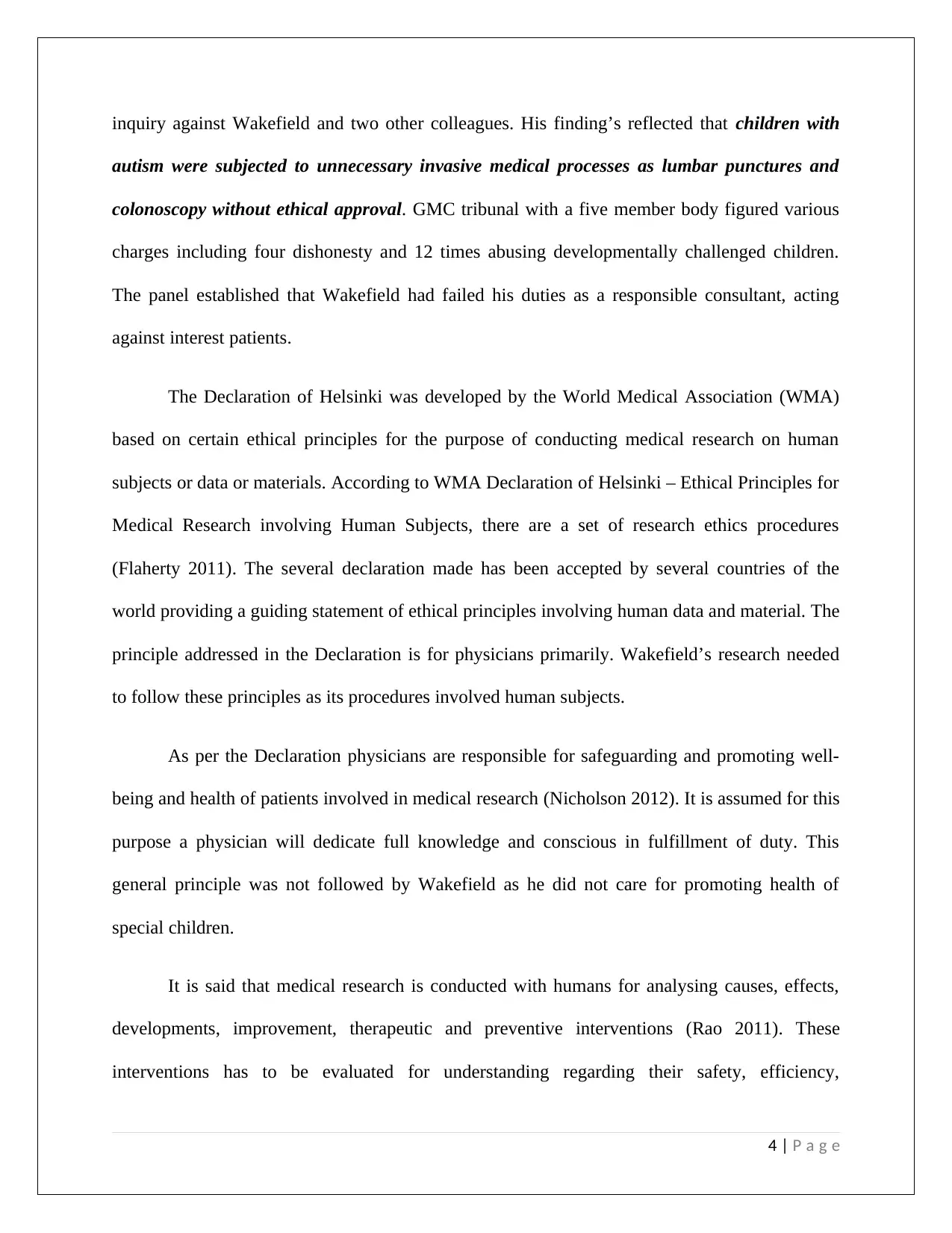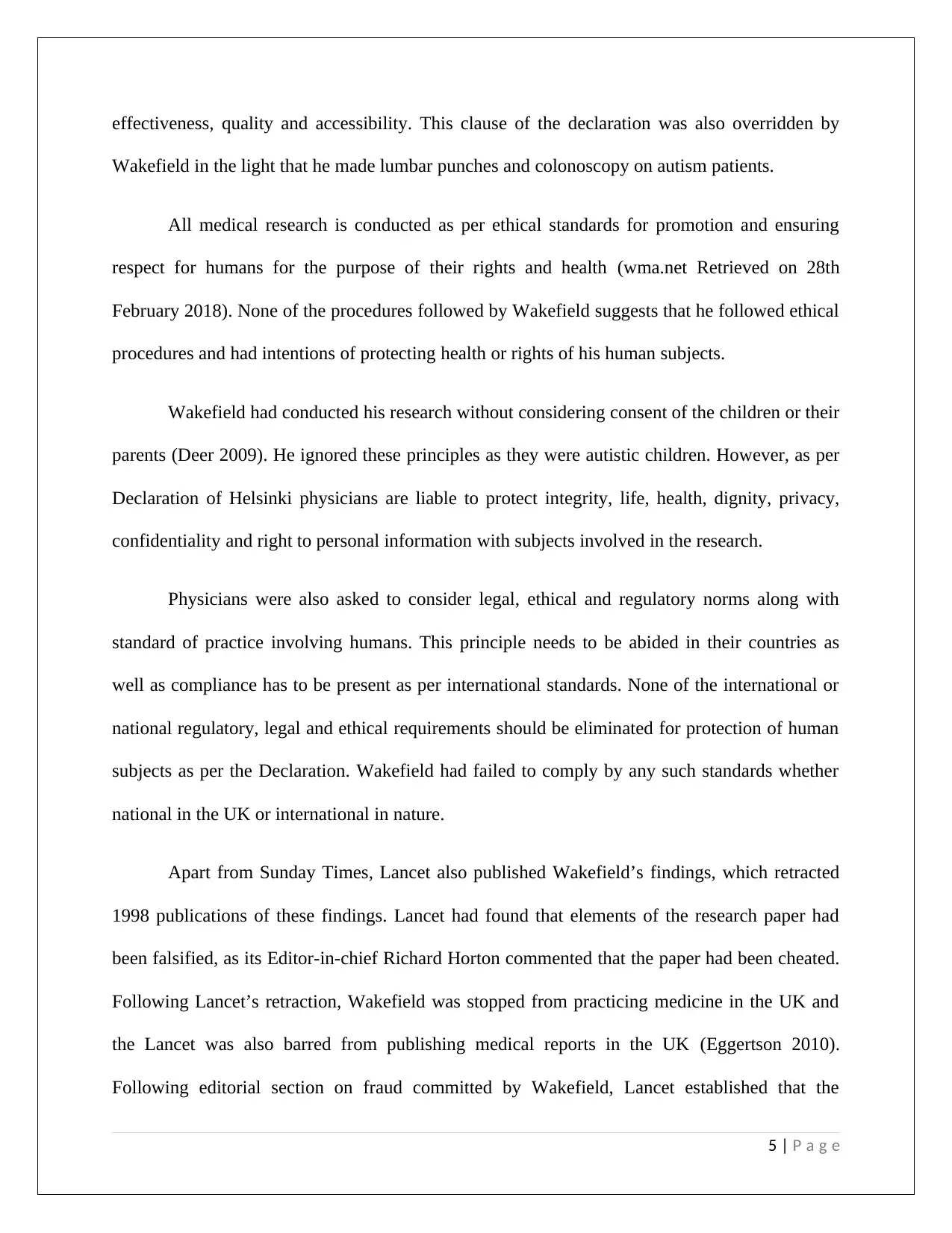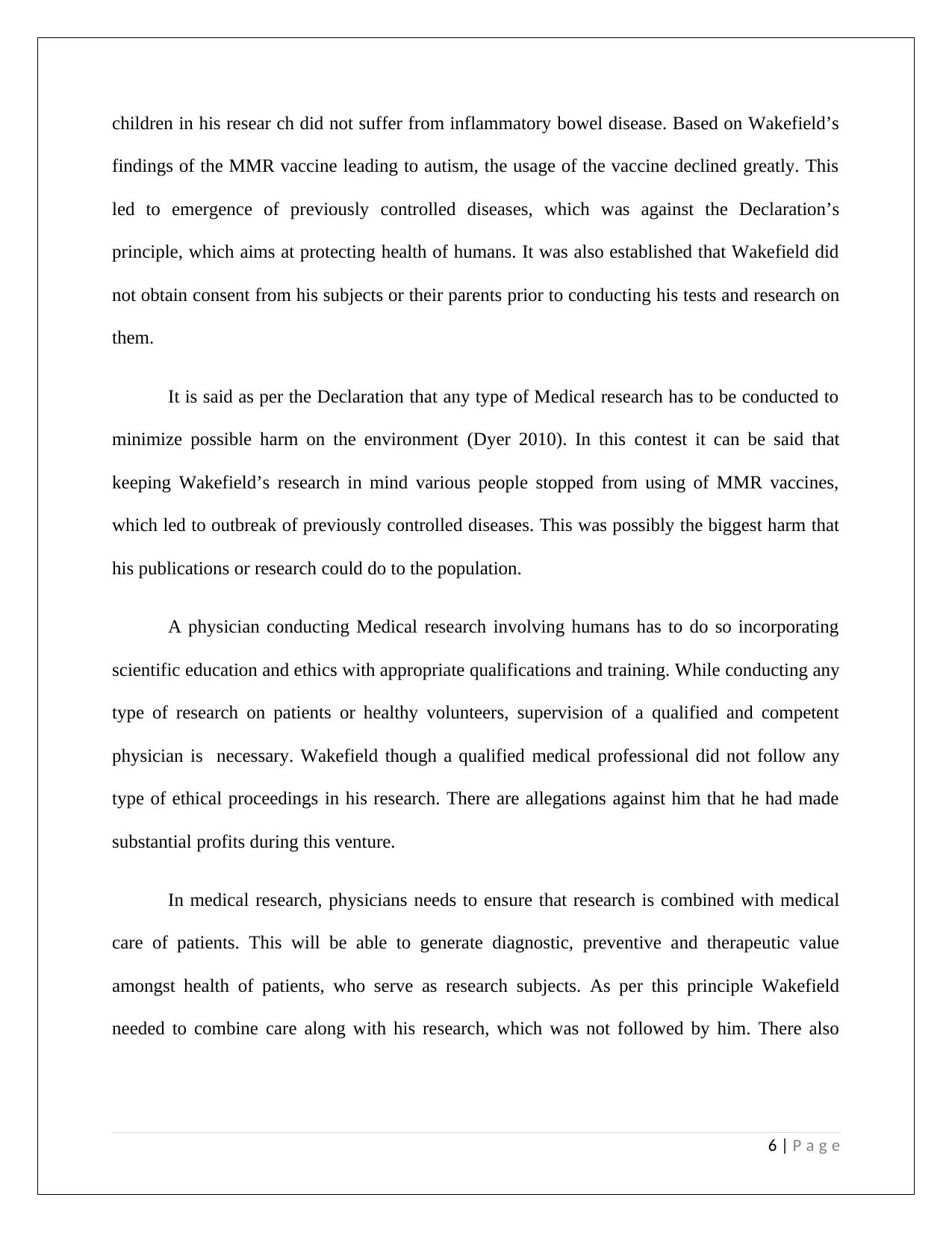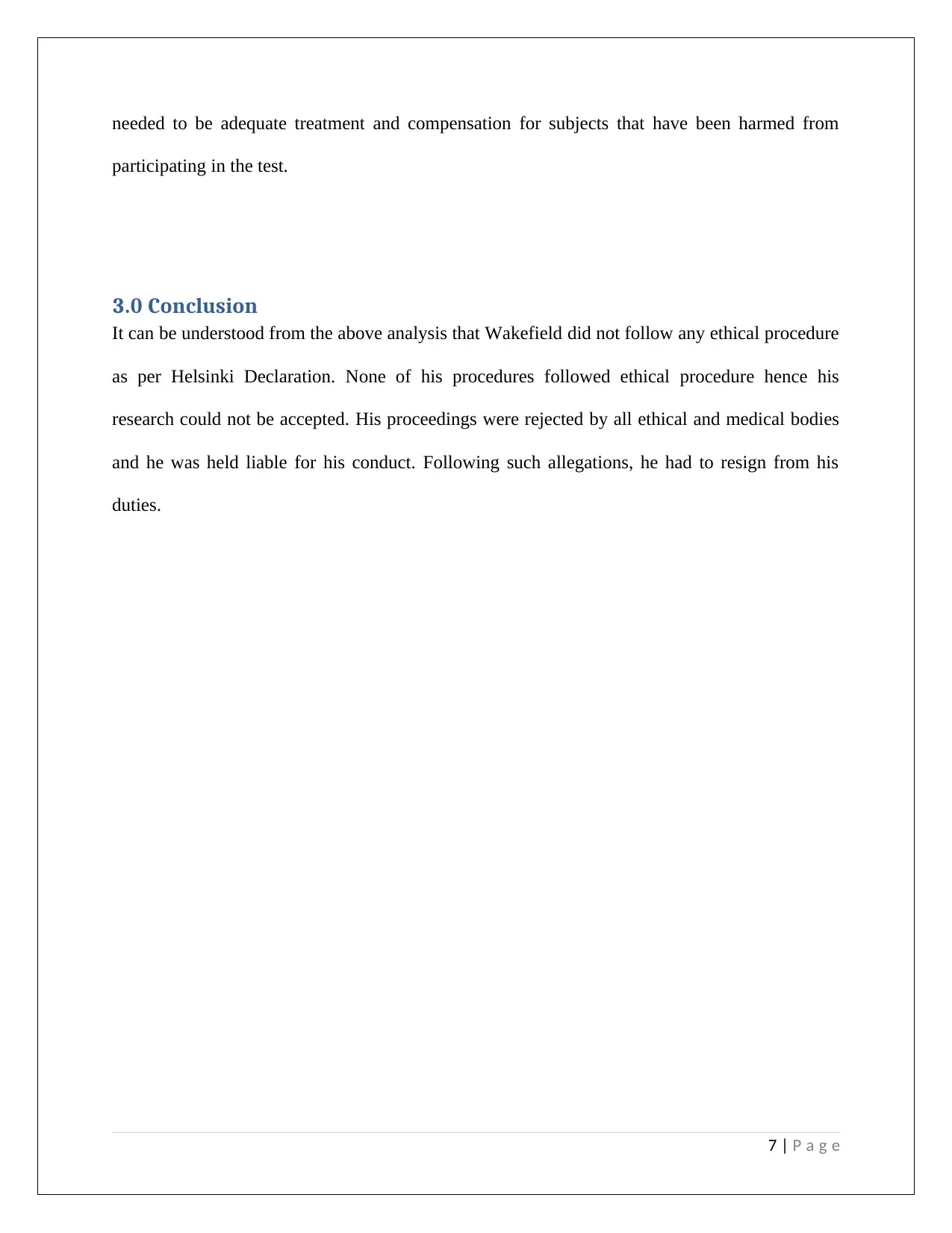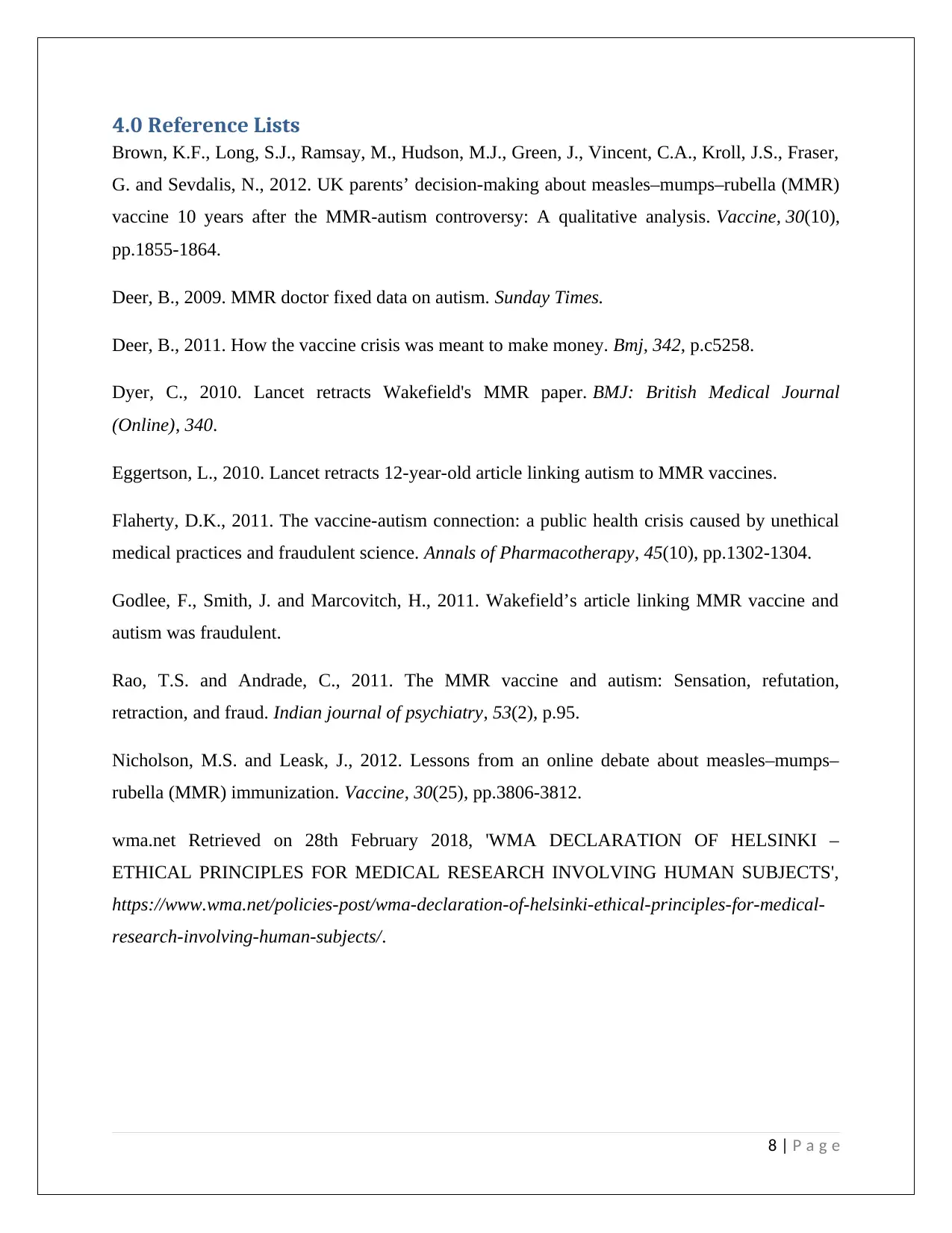This assignment provides an in-depth analysis of the ethical controversy surrounding Andrew Wakefield's medical research, specifically his 1998 study that falsely linked MMR vaccines to autism. The assignment highlights how Wakefield's actions were in direct contravention of the Helsinki Declaration, which emphasizes the importance of informed consent, non-maleficence (do no harm), and respect for persons. It also examines how Wakefield's research was plagued by methodological flaws, including the use of outdated and flawed diagnostic criteria. The assignment concludes that Wakefield's actions were a clear example of unethical medical practice and had serious consequences for public health. It is essential reading for students of medical ethics and researchers in the field.
![[object Object]](/_next/static/media/star-bottom.7253800d.svg)
![[object Object]](/_next/static/media/star-bottom.7253800d.svg)
